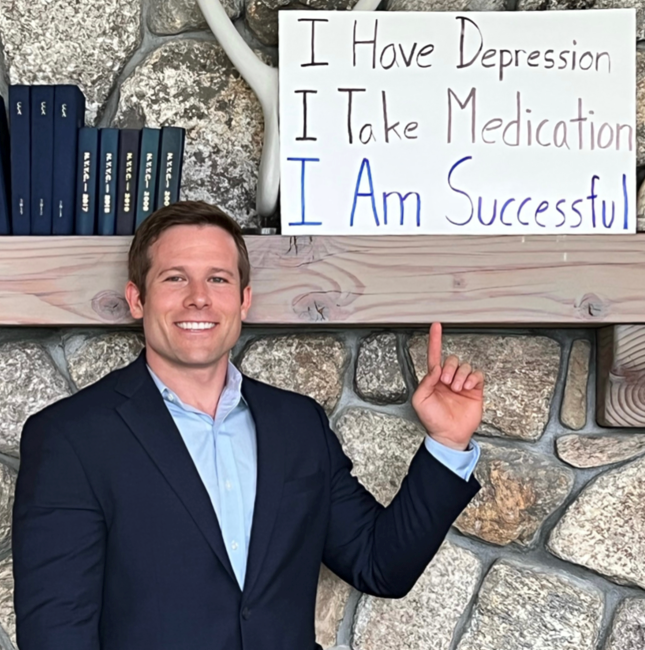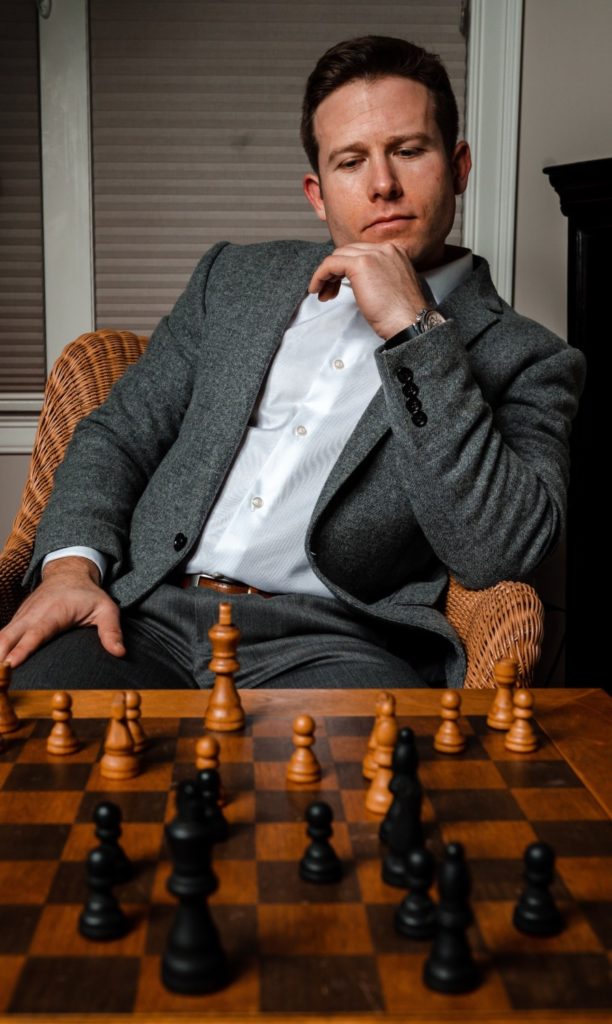
Over 27 million adults with mental health illness go untreated (MHA, 2022) and one large reason is due to stigma. Acknowledging you are struggling with your mental health and getting help is a strength.
“I Have Depression. I Take Medication. I Am Successful.”
I struggle with major depression, have a therapist, and take medication, but despite these challenges, I am a successful executive flow coach, entrepreneur, investor, and elite athlete. I am much stronger due to my adversity and have a heightened sense of self-awareness. It took me many years to arrive at this point in my life and I am determined to help empower professionals overcoming mental health challenges.

In my early twenties, I was first diagnosed with major depressive disorder and battled with daily thoughts of suicide that persisted for nearly a decade. I didn’t understand why I felt this way and others viewed my life as perfect. I had a 4.0 GPA at an Ivy League school, was a top sailor in the country with dreams to compete in the Olympics, and came from a successful family of doctors. Everything pointed towards happiness, but I dropped out of college, was unemployed, on disability, and penniless. I had no choice but to get treatment, undergo hours of therapy, and try a plethora of medications.
As I attempted to move towards employment, my father, a successful doctor, told me, “If anyone knew you took medication for mental illness you would never get hired.” When I first heard this I felt so broken and ashamed. I was struggling with a life-threatening illness that had to be kept a secret at all times and so the only option was to appear strong and healthy. Living a lie fueled my depression and further isolated me.
“It is OK to not always be OK.”
During my journey to return to a contributing member of society I met many professionals battling mental health. The same narrative appeared again and again; if you were in the professional space being treated for mental illness you were seen as a potential liability or detrimental in a team environment. No one felt comfortable talking about their challenges except to the few others they knew who shared similar struggles. Many of the people I met in the hospital arrived there due to a severe escalation in burnout and work-related stressors. These people were either too embarrassed or scared to ask for help due to stigma. Several of these professionals I met over the last fourteen years ended their lives.
Only 40% of employees who report severe depression receive treatment for depression symptoms. (CDC)
This is unacceptable in our society and we can do better! To assist in the healing process and save lives we should praise individuals for seeking help. I believe we could all benefit from therapists and coaches to improve our personal and professional lives. In addition, some of us might need a little extra support from medication, which is no different from a diabetic taking insulin or an individual taking blood pressure medication. If you are about to say no, because you believe one medication deals directly with mental state and logic, I would continue reading. If someone doesn’t take their insulin or blood pressure medication they can feel fatigued, foggy, anxious, depressed, and even face life-threatening challenges. The bottom line is that finding what works for your mental health is essential, demonstrates strong self-awareness, and is empowering.
“Getting help is a strength, not a weakness.”
When your mental health is properly cared for, you are exponentially more likely to maintain a high level of productivity and enter into a flow state. We should support employees to prioritize mental health and preventive care. Programs should be readily available and upper management should always have their doors open to offer support and resources.
As I have developed my career, I have found that being outspoken about my mental health and treatment has only made me more successful. Many people have opened up to me about their struggles, including CEOs, professional athletes, famous actors, and others. In addition, by sharing my true narrative I feel I can be myself and not be embarrassed. My confidence has blossomed and my overall mood has improved.
More than ever we need to come together and speak up about our struggles and show unconditional support to one another. The only way to destroy the stigma of mental health is to become united. In addition, if you know people who are struggling, take a minute out of your day and offer them support. Sometimes all it takes is one conversation to change or even save a life.
On a final note, I do want to acknowledge that my father has greatly changed his perspective on mental health in the workplace. He has seen me grow and clearly understands the positive response to my advocacy. My family and I have gone through a lot of healing and are now closer to each other. One’s family has a strong ability to expedite healing or intensify suffering.
“Turn adversity into opportunity.”
If you are battling with mental health, burnout, and balancing your professional career, please send me a message. I have helped many individuals overcome adversity and leverage their strengths to create success. I am always here to listen, share resources, and offer my specialties as a coach and mentor.
Comment and share this article if you want to help destigmatize mental illness: Go to LinkedIn article
988 Suicide and Crisis Lifeline


